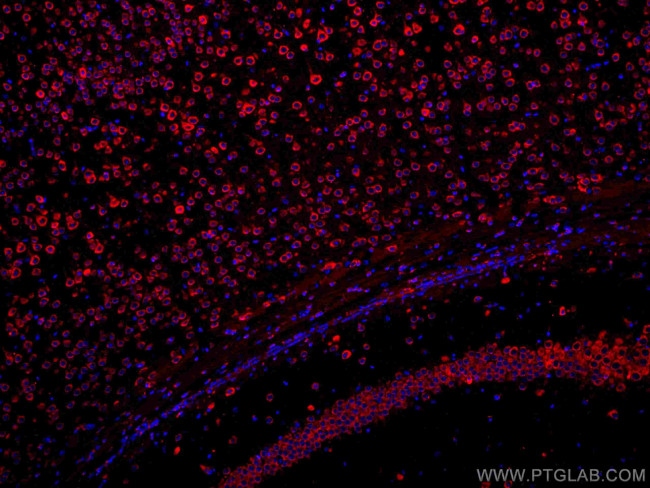Search Thermo Fisher Scientific
Product Details
CL59417479100UL
Species Reactivity
Host/Isotype
Class
Type
Conjugate
Excitation/Emission Max
Form
Concentration
Purification
Storage buffer
Contains
Storage conditions
Shipping conditions
Target Information
Specifically recognizes and binds N6-methyladenosine (m6A)-containing mRNAs, and promotes mRNA translation efficiency (PubMed:24284625, PubMed:26046440, PubMed:26318451). M6A is a modification present at internal sites of mRNAs and some non-coding RNAs and plays a role in the efficiency of mRNA splicing, processing and stability (PubMed:24284625). Acts as a regulator of mRNA translation efficiency: promotes ribosome loading to m6A-containing mRNAs and interacts with translation initiation factors eIF3 (EIF3A or EIF3B) to facilitate translation initiation (PubMed:26046440). Required to facilitate learning and memory formation in the hippocampus by enhancing protein synthesis upon neuronal stimulation: in response to neuronal stimulation, binds to m6A-containing neuronal mRNAs, promoting their translation, thereby contributing to learning and memory. Acts as a regulator of axon guidance by binding to m6A-containing ROBO3 transcripts, thereby promoting their translation. Acts as a negative regulator of antigen cross-presentation in myeloid dendritic cells. Acts by binding and promoting translation of m6A-containing transcripts encoding proteins involved in lysosomal degradation and phagosome maturation, leading to increased antigen degradation in myeloid dendritic cells. In the context of tumorigenesis, negative regulation of antigen cross-presentation limits the anti-tumor response by reducing efficiency of tumor-antigen cross-presentation. [UniProt]
For Research Use Only. Not for use in diagnostic procedures. Not for resale without express authorization.
References (0)
Bioinformatics
Protein Aliases: DACA-1; DACA-1 homolog; Dermatomyositis associated with cancer putative autoantigen 1; Dermatomyositis associated with cancer putative autoantigen 1 homolog; DF1; YTH domain family 1; YTH domain family protein 1; YTH domain family, member 1; YTH domain-containing family protein 1; YTH N(6)-methyladenosine RNA binding protein 1
Gene Aliases: 2210410K23Rik; 8030473O16; C20orf21; YTHDF1
UniProt ID: (Human) Q9BYJ9, (Mouse) P59326
Entrez Gene ID: (Human) 54915, (Mouse) 228994

Performance Guarantee
If an Invitrogen™ antibody doesn't perform as described on our website or datasheet,we'll replace the product at no cost to you, or provide you with a credit for a future purchase.*
Learn more
We're here to help
Get expert recommendations for common problems or connect directly with an on staff expert for technical assistance related to applications, equipment and general product use.
Contact tech support

